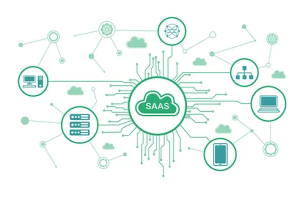The search landscape is evolving rapidly, blending the boundaries between traditional search engines and AI chatbots as discussed in the privious article about how businesses are benefiting through AI. In this article we are going to look at the Tools like ChatGPT’s latest GPT-4 and Google’s Search Generative Experience (SGE) are shifting how users engage with search. In this ever-changing landscape, SEO professionals are facing new challenges—and exciting opportunities—as AI-first platforms fragment the search space and redefine how we optimize content.
This transformation introduces terms like Artificial Intelligence Optimization (AIO) and Generative Engine Optimization (GEO) into the search lexicon, expanding SEO’s scope to encompass strategies optimized for AI-driven engines.
Let’s explore how these shifts impact search marketing, SEO strategies, and what marketers can do to stay competitive in this converging ecosystem.

What Is a Chatbot or AI Assistant?
At their core, chatbots are powered by natural language processing (NLP) and large language models (LLMs) that pull and classify data to generate human-like responses. Traditionally embedded in applications like customer service websites and messaging platforms, chatbots focus on specific user queries or tasks
Today, as generative AI technologies evolve, these tools are taking on new roles. They can engage in natural conversations, help with SEO, generate content, and support research across various contexts. This shift is blurring the lines between chatbot applications and search engine functions, leading to the rise of chatbots that operate similarly to search engines.
The Evolution of Chatbots and AI Models
Since OpenAI released ChatGPT in 2022, AI-driven chatbots and assistants have grown immensely popular, reshaping how users interact with technology. Chatbots are now multimodal, capable of processing text, images, and audio, opening up new applications across industries, from content creation to coding assistance.
Popular chatbots and AI assistants include:
- ChatGPT: Known for its conversational abilities in research, ideation, and content creation.
- Google Gemini and Gemma: Uses Google’s LLM to connect users with Google’s extensive data.
- Microsoft Bing: Features ChatGPT-driven conversational search.
- Perplexity AI: Acts like a search engine, with citations for source accuracy.
This convergence highlights the blurred line between chatbots and search engines as their functionalities increasingly overlap.
Chatbots and Search Engines: What’s the Difference?
Both chatbots and search engines are designed to provide information, yet they approach it differently:
- Search Engines: Excellent for exploring various topics, offering results from multiple sources.
- Chatbots: Quick answers and task completion with a personal touch, ideal for on-the-go queries.
Though the lines between them are increasingly blurry, search engines still offer broader data access, while chatbots focus on efficiency and personalized responses.
How Chatbots and Search Engines Work Together
Conversational search allows users to engage in natural language queries, and search engines are integrating chatbot-like features to improve user experience. Chatbots, in turn, tap into search engine capabilities to provide accurate information.
Some platforms illustrating this blend are:
- Google SGE: Combines direct answers with conversational search features.
- Bing Chat: Offers ChatGPT-powered conversational search.
- YouChat: Delivers conversational responses similar to a search engine.
This fusion is expanding, with each platform finding unique applications in a multisearch universe where users can customize their AI tools.
The Rise of AI-Driven Search Engines
Generative AI has brought fundamental changes to traditional search engines, which now provide summarized responses instead of only displaying lists of links. As Google rolls out AI Overviews in its SGE and other platforms like Perplexity and You.com enter the space, the distinction between traditional search engines and chatbots continues to shrink.
As user preferences evolve, different search platforms will cater to specific needs, from product discovery on Amazon to videos on YouTube. AI will only amplify this trend.
Strategies for Marketers in a Converging Search Landscape
With the convergence of chatbots and search engines, marketers must adapt their SEO efforts for both traditional and AI-first platforms. Here’s how to optimize across different engines:
- Google
- Strength: Comprehensive data sources.
- Tip: Prioritize structured data, schema markup, and mobile optimization to improve visibility in Google’s Search Generative Experience.
- Perplexity AI
- Strength: Prioritizes citations and sources.
- Tip: Ensure your content is well-researched and authoritative, as this platform emphasizes reliable sources.
- ChatGPT
- Strength: Conversational style.
- Tip: Use clear, engaging language that aligns with ChatGPT’s conversational responses to connect with users.
Key SEO Strategies for Marketers
To succeed in this new era, marketers must embrace SEO’s expanded role, blending technical skills with creative strategy:
- Core Technical SEO: Ensure your site is optimized with fast load times, mobile compatibility, and appropriate schema markup.
- Semantic Search Optimization: Optimize for natural language queries and long-tail keywords to capture intent-based searches.
- High-Quality Content: Engaging content with unique insights will continue to stand out in AI-driven search results.
- Authoritative Content: Ensure content is thoroughly researched and positioned as a reliable source to enhance credibility and drive citations.
- Predictive Content: Anticipate user questions and provide comprehensive answers to increase engagement and relevance.
Embracing a Holistic Approach in the AI-Driven Search Landscape
With the overlap between chatbots and search engines, marketers must adopt a holistic approach to SEO. It’s no longer just about keyword rankings or click-through rates; it’s about understanding each platform’s unique strengths and optimizing for varied user intents.
From conversational search on AI platforms to optimizing content for authority in traditional engines, the search ecosystem requires creativity and collaboration. With this approach, marketers can achieve meaningful results and stay competitive in a complex, AI-enhanced search landscape.
Moving Forward
In this dynamic environment, some questions remain: Are chatbots evolving into search engines? What role will social platforms play as younger generations use them for search?
Regardless of the answers, one thing is clear: AI in search is reshaping the industry, requiring SEO professionals to think beyond traditional optimization techniques. With a strategic approach to content and technical SEO, marketers can successfully navigate this multisearch world and leverage new opportunities across diverse platforms.
As the definitions of SEO expand, marketers who prioritize flexibility and innovation will be well-positioned to thrive in this ever-evolving landscape.
Source SEJ




